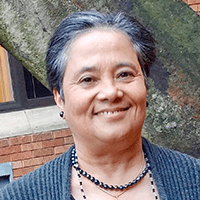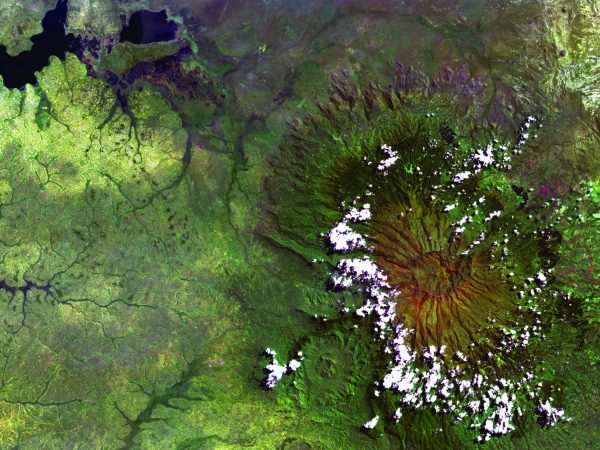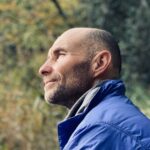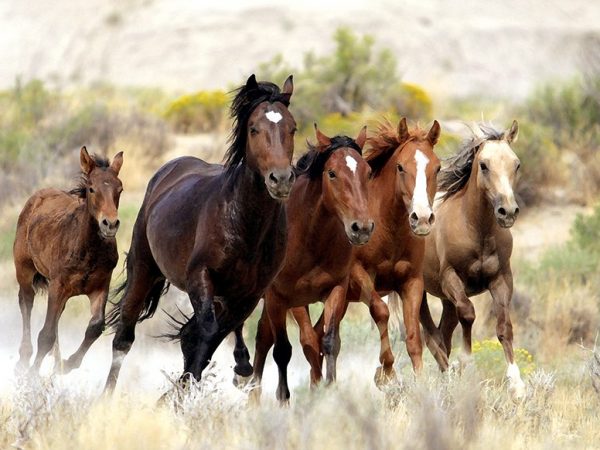I want to talk a little bit about one of my very favorite Buddhist suttas, the Vipallasa Sutta—it’s part of the Anguttara Nikaya—and wrong view. This is the whole sutta:
Sensing no change in the changing,
Sensing pleasure in suffering,
Assuming “self” where there’s no self,
Sensing the un-lovely as lovely —Gone astray with wrong views, beings
Mis-perceive with distorted minds.Bound in the bondage of Mara,
Those people are far from safety.
They’re beings that go on flowing:
Going again from death to birth.But when in the world of darkness
Buddhas arise to make things bright,
They present this profound teaching
Which brings suffering to an end.When those with wisdom have heard this,
They recuperate their right mind:They see change in what is changing,
Suffering where there’s suffering,
“Non-self” in what is without self,
They see the un-lovely as such.By this acceptance of right view,
They overcome all suffering.
I love that sutta. To briefly review it, the four Vipallasas are distortions very much like the three characteristics of reality that we know. If we’re not seeing the three characteristics of reality as we walk around our life, we have distortions of perception, thought, and view; our understanding of the world is distorted. We hold the impermanent as permanent. We trust that things that are unsatisfactory, that all these conditioned things somehow are going to bring us some lasting satisfaction. We grasp at things as if we as people ourselves are permanent. And we don’t really understand the nature of beauty.
These are the three levels of the Vipallasas: distortions of perception, thought, and view. I think this is very much tied to a classic organization development idea from Peter Senge and Chris Argyris, who actually have Buddhist underpinnings to their approach. In this Ladder of Inference, we select data, then we filter the data based on our views, and we affix meaning to things and conceptual overlays, when reality really is not a bunch of concepts. Reality is beyond concepts, from what I have understood. We come to a conclusion about the way things are and these beliefs become hardened views, ditthi vipallasas. Then based on that, we determine what to even experience in our environment.
One way to understand how these are formulated is through this matrix of power: control of economy—as a mixed-race native person, that’s the social location that I see it from—land appropriation, labor exploitation; control of natural resources; control of authority through government and normative institutions like the army; control of gender and sexuality, family, and education; and control of subjectivity, which is really the most insidious one. As a college professor, I can see that we think our subjectivity explains the world, and that’s what people in power think. They believe that they have the right subjectivity, and if everyone else wasn’t stupid, they would think the same way as them. Which is definitely avidya. It’s ignorance.
One of the things that this worldview has led to is epistemicide, the killing of other ways of knowing. This is an emerging important perspective or theoretical view in higher education right now. This, for example, is what Western science and Western medicine have tried to do; the intention was to kill off native indigenous ways of knowing and indigenous healing systems.
This video was made by a brilliant student of mine, Nate Trig, who made this as part of his final class assignment.
This is an example of some of the ways of life or epistemologies, ways of knowing, ways of holding the world that are different, that have an opportunity to actually save the planet. Bolivia and Ecuador, both indigenous countries with a predominant population of indigenous peoples, are examples of an indigenous epistemology or a way of knowing relationship. A few years ago in the Bolivian constitution they actually gave the same rights to Pachamama, to nature, that humans have—the right to life and to exist, to continue vital cycles without alteration. The water has a right to be pure and clean. The air has a right not to be polluted. These are examples of ways of knowing and ways of relationship to the natural world that have been killed off by predominant Western ways of knowing.
The water has a right to be pure and clean. The air has a right not to be polluted.
From a perspective of distortions of perception, thought and view, there are perceptions that are among us humans: that men might think they need to be in charge, or that European peoples and their descendants were more valuable than others, and that nature is a commodity for pleasure and convenience. The thoughts that those perceptions might give rise to are that we need more oil production for my use and everything should be privatized for efficiency—that whole idea of neoliberalism that is part of what’s happening right now in this country and globally. I think the Buddha was right—it is all situated in ignorance, greed, aversion and delusion. The Vipallasas at that level are: accumulation equals happiness, myself is most important, and colonization of the sacred through commodification.
This is just one way to think about and to organize what’s happening to us, as aspects of nature and the threat that’s before us right now.
What is one of the ways to free ourselves? Sati, mindfulness. Satipatthana is an actual source of uprooting these delusions. Mindfulness—hold things between privilege and intolerance. It opens to the suffering and realizes the common humanity that, as my dear friend Ruth King says, nothing is ever perfect, personal, or permanent. We can reflect on what the Buddha said and everything in our lives—it’s not perfect, it’s not personal, and it’s not permanent.






